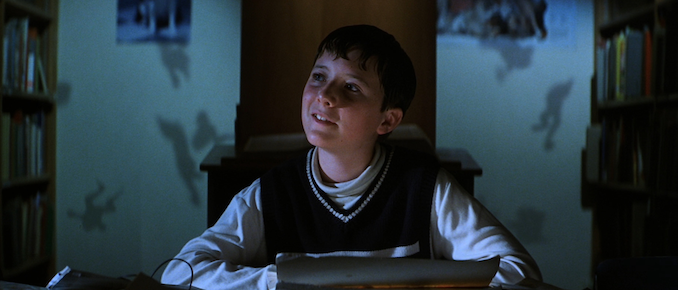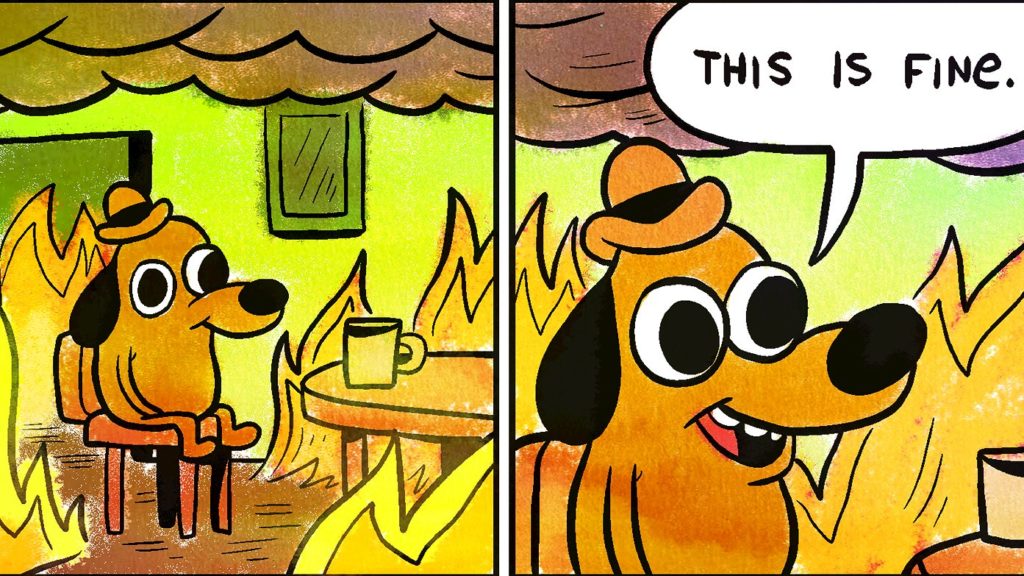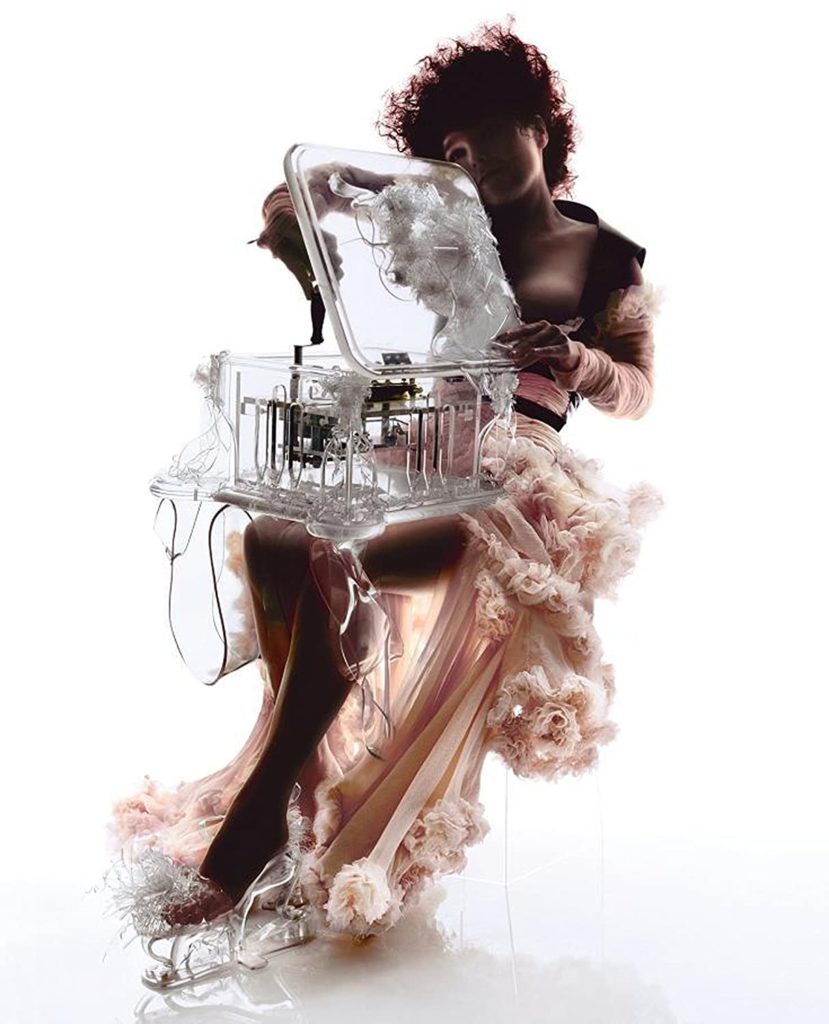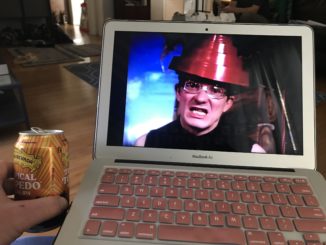

And then the smoke rolled in.
Is it possible to add the wildfire and presidential election seasons to the flaming pile of 2020 and still come out on the other end sane? I feel like it’s more than I can handle.
In fact, I’m done. My brain no worky.
As I’ve attempted to write this column off and on for the past two days, I have either been at a loss for words, or have had all the thoughts and words bleed out of my pores simultaneously into a little black pool on the screen. I feel pretty useless and I am utterly defenseless against distractions.
What’s that shiny thing?
I might need to get the poodle in on this one. Maybe if I just sit here in the middle of the floor and cuddle until some of that sweet oxytocin hits the dome … mmm …
With my back in full armadillo mode as I hunched over the keyboard for hours absorbing the monitor’s light, I have disappeared down many distracting rabbit holes. Most only served to further erode my fortitude (read Atlantic editor Adrienne LaFrance’s deep dive into QAnon—“The Prophecies of Q: American conspiracy theories are entering a dangerous new phase”—only if your faith in humanity can withstand a Mike Tyson-sized punch in the mouth).

But there was one story (posted by my friend and one-time CN&R co-worker, Devanie Angel) that serendipitously appeared on my Facebook feed yesterday: “Your ‘Surge Capacity’ Is Depleted—It’s Why You Feel Awful,” by Tara Haelle. In these corona-times, “surge capacity” isn’t just a measure of a hospital’s ability to expand beyond normal services in order to treat a greater-than-normal influx of sick people, it is also something that allows humans to level up when the need arises.
As psychologist/child-development professor Ann Masten puts it in the article: “Surge capacity is a collection of adaptive systems—mental and physical—that humans draw on for short-term survival in acutely stressful situations, such as natural disasters.” And as she goes on to say, since this pandemic has gone on much longer than most disasters, the limits of our surge capacity is being tested.
In short, many of us have used up our reserves.
I wonder if residents of Paradise or Concow even had anything left in the tank at the beginning of shelter-in-place, let alone five months into it and with George Floyd’s murder, Trump’s continued cruelty and more wildfire smoke along the way. Have the reserves drained by the Camp Fire had time to replenish? Has anyone’s in Butte County?
So, what’s the answer? How do we refill the tanks for this ongoing and increasingly intense surge? To oversimplify what the article says: First we grieve the loss(es), then we start to fill our tank with resilience-building practices.
I’m sure many of us are in some stage of grief already—somewhere between anger and depression I’d guess—but it almost doesn’t seem possible to get to acceptance, especially if you have no job in addition to no access to friends, family, community, human or animal contact … and now no air or sun either. What’s acceptance of all of that even look like? Rocking back and forth with a smile on your face for several months?
Michael Maddaus, a doctor interviewed in the article, says it requires a radical re-framing of reality and coming to terms that this is a “shitty time … and accept that as a baseline.”
Fine. Done. Things are shitty.

As for refilling the surge tank, Maddeus says that the key areas to focus on are “sleep, nutrition, exercise, meditation, self-compassion, gratitude, connection, and saying no.”
(He doesn’t include ice cream, but I’ma add that to my list.)
In the piece, Haelle acknowledges that much of the self care that we normally turn to for this kind of reboot—a massage, coffee with friends, swimming at the gym, etc.—has been stolen by COVID-19. All you can do is start small with whatever you can and, as Maddeus says, “be gentle with ourselves and keep on.”
OK. I can be gentle. I believe you can, too. I think music is a good place to start. We don’t have live shows to experience together, but if there’s one thing the Internet is good for is it has all the music.
A few months before he died, Prince told his biographer Dan Piepenbring, “Music is healing,” insisting those words be the first thing he write down for the book. Always trust Prince. I do.
Music has always been one of my main fuel sources, and I’ve spent about 8 of the last 24 hours watching/listening to it—Prince at the 2007 Super Bowl halftime show (one of the best live performances in history), The Rolling Stones Rock and Roll Circus, “Re-Arranger” by Mates of State, Shepparton Airplane’s screaming new album Sharks; Bjork live at the Royal Opera House—and I think I’ve filled my surge tank enough to endure another day of smoke.
I’m going to keep the poodle and the ice cream nearby just in case.




You should watch this Grace Jones video, it’s my go-to for cheering up. It will put a tiger in your tank Honey.
https://www.youtube.com/watch?v=6kSZVtLFygs
Oh yeah, then look for Muddy Water’s Tiger in Your Tank, you’ll be singing around the house all day. Shake that money maker. Stomp your feet, clap your hands. Keep it up.
Mike Wofchuck pulled me through a tough time by insisting I turn off Facebook, stop reading news, and watch only Sting interviews or live performances of The Police. Saved my bacon, he did.
Oh my gosh. There are comments here. I thought this was once my alone space, but there are others. Love you, Skeeter. We’ll get through this.